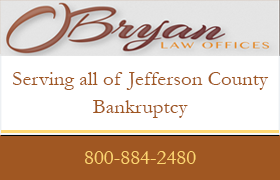Lebanon Junction Bankruptcy & Debt Lawyer, Kentucky
-
Sponsored Law Firm
-
 x
x

Click For More Info:
-
Obryan Law Offices
9311 Preston Hwy Louisville, KY 40229» view mapBankruptcy Lawyers That Fight For You
Obryan Law Offices has helped thousands of families restore peace and order to their lives. Call us today!
800-884-2480
Arlene Courtney Gray
Bankruptcy, Corporate, Collection, Consumer Bankruptcy, Employment
Status: In Good Standing
FREE CONSULTATION
CONTACTJulie Ann O'Bryan
Consumer Bankruptcy, Bankruptcy, Bankruptcy & Debt, Personal Injury
Status: In Good Standing
LaShea Borden
Collection, Consumer Bankruptcy, Credit & Debt, Estate Administration
Status: In Good Standing
Kimberly Lynne Musselwhite-Staples
Divorce & Family Law, Criminal, Bankruptcy, Bankruptcy & Debt
Status: In Good Standing

 Julie Obryan Jefferson, KY
Julie Obryan Jefferson, KY About UsObryan Law Offices
About UsObryan Law Offices FAQFrequently Asked Questions
FAQFrequently Asked Questions
